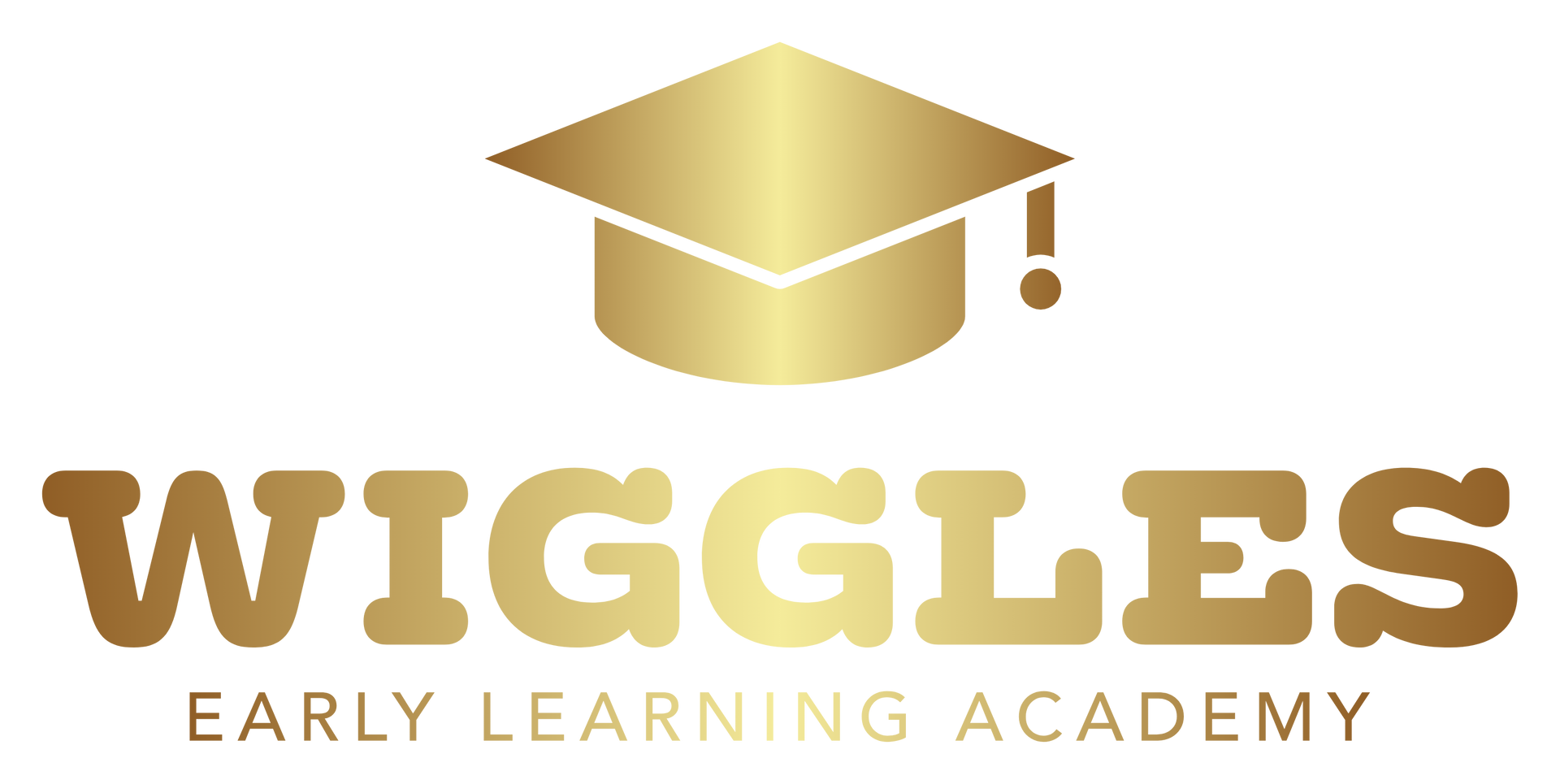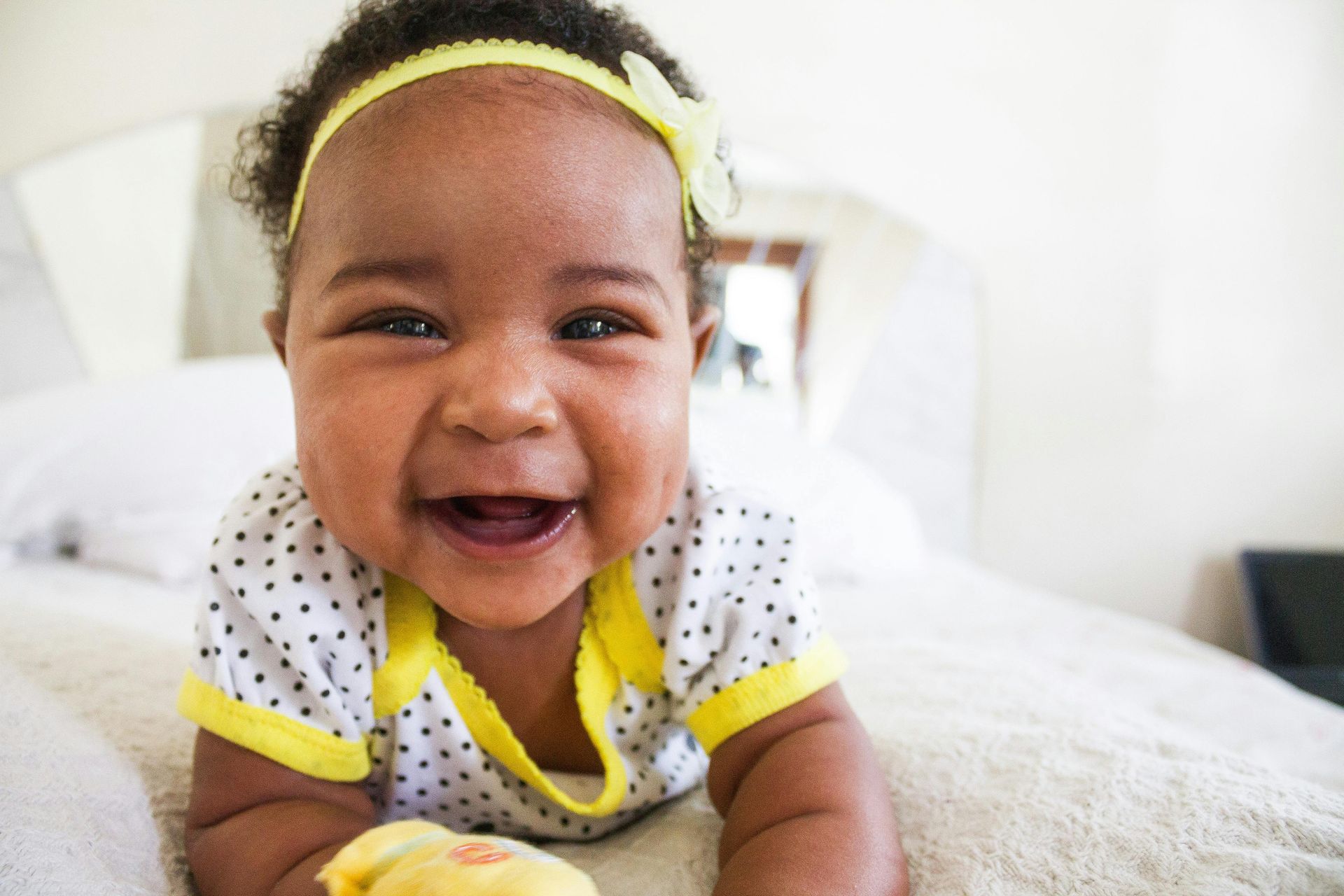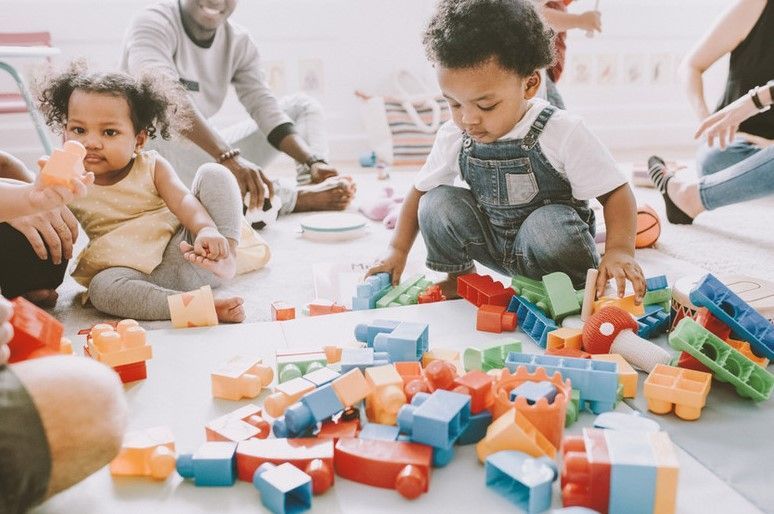Curriculum
Our curriculum is thoughtfully designed to meet the developmental needs of children at different stages, offering both structure and flexibility to foster learning and growth. Here's a summary of how our approach supports each age group:
All ages within our center have the full experience with our core programs.
- Language & Literacy
Building a love of reading from a young age is one of the most powerful ways to set children up for success in all areas of learning. When children are introduced to stories, letters, and words early on, it helps them develop a love for books and lays the foundation for literacy skills that will benefit them throughout their lives. Here at Wiggles Early Learning Academy we build that love of reading in young children through engaging and interactive activities.
- Mathematical Thinking
We believe that teaching math through fun and engaging activities is a fantastic approach to help children develop strong problem-solving skills and logical thinking. When math is presented in a playful and interactive way, it encourages curiosity and a positive attitude toward learning. We continuously use innovative ideas for math activities that can help children solve problems, think logically, and develop foundational math skills:
- Social-Emotional Learning
Our curriculum focuses on emotional and social development, as these are key areas that lay the foundation for healthy relationships and well-being throughout life. Helping children understand and manage their emotions, build relationships, share, and develop self-help skills not only supports their personal growth but also fosters a positive learning environment.
- Wellness
Our physical activities, dance, and games are essential for developing both fine and gross motor skills in young children. These activities also offer opportunities to teach important lessons about health, nutrition, and safety. Here at Wiggles Early Learning Academy, we effectively incorporate these into our curriculum to support physical, cognitive, and social development.
- Creative Expression
Our students participate in art and music in wonderful ways to nurture creativity, self-expression, and cognitive development. When students participate in art and music activities, they have the opportunity to explore their imaginations, build confidence, and communicate their thoughts and feelings in non-verbal ways.
- Scientific Exploration
We Incorporate hands-on science and technology activities into early childhood education. We believe it is a powerful way to spark curiosity, foster collaboration, and develop problem-solving skills. These activities not only engage children in learning about the world around them but also encourage critical thinking, teamwork, and creativity. We implement science and technology activities that promote exploration, teamwork, and logical thinking
- World Cultures
We introduce our young children, to different cultures and languages from an early age. We believe this is a fantastic way to foster global awareness, empathy, and respect for diversity. Even at this early developmental stage, children can begin to appreciate different cultures and languages through music, stories, visual arts, games, and simple language learning. We engage in age-appropriate activities to help build global awareness and to include Spanish to young children:



